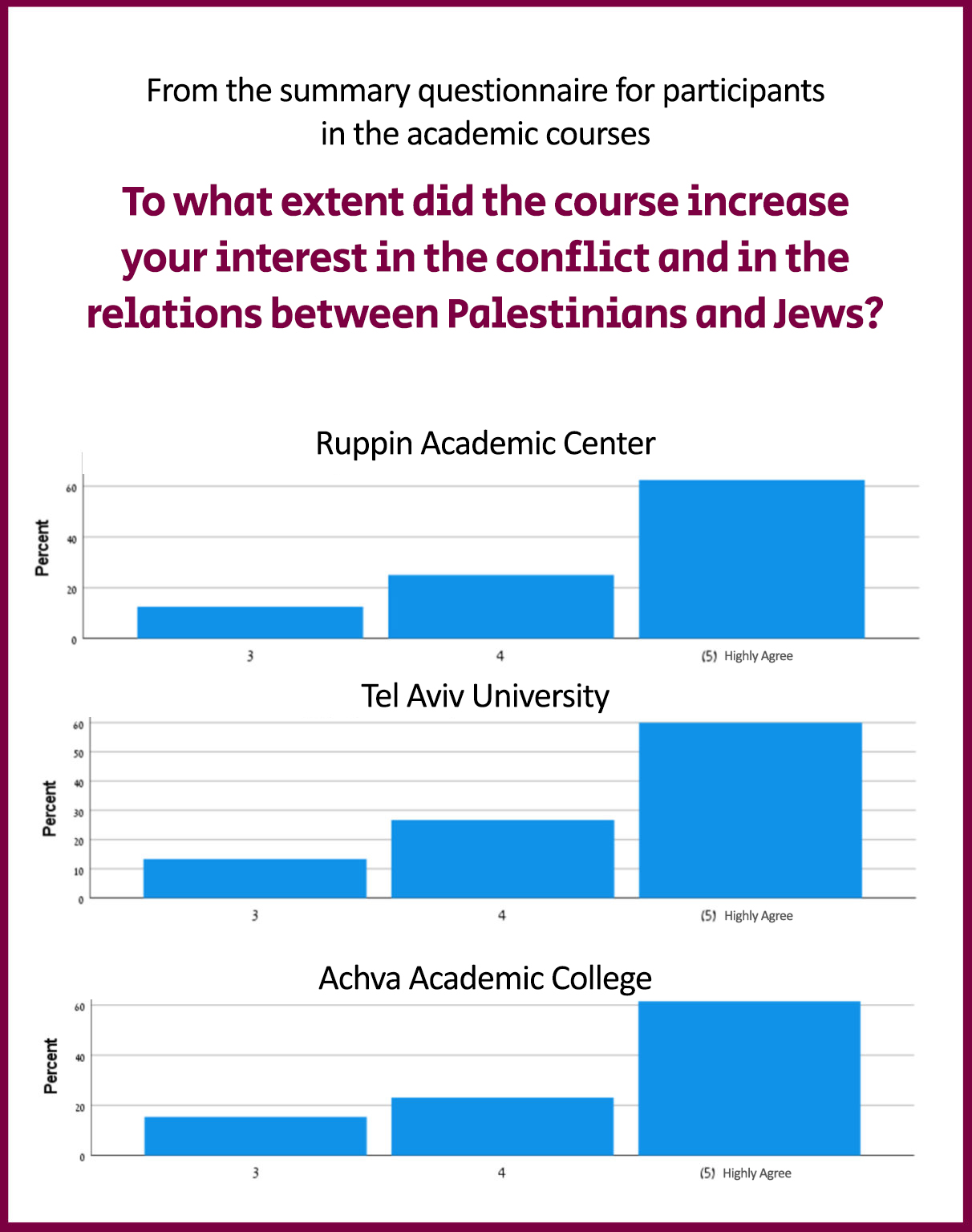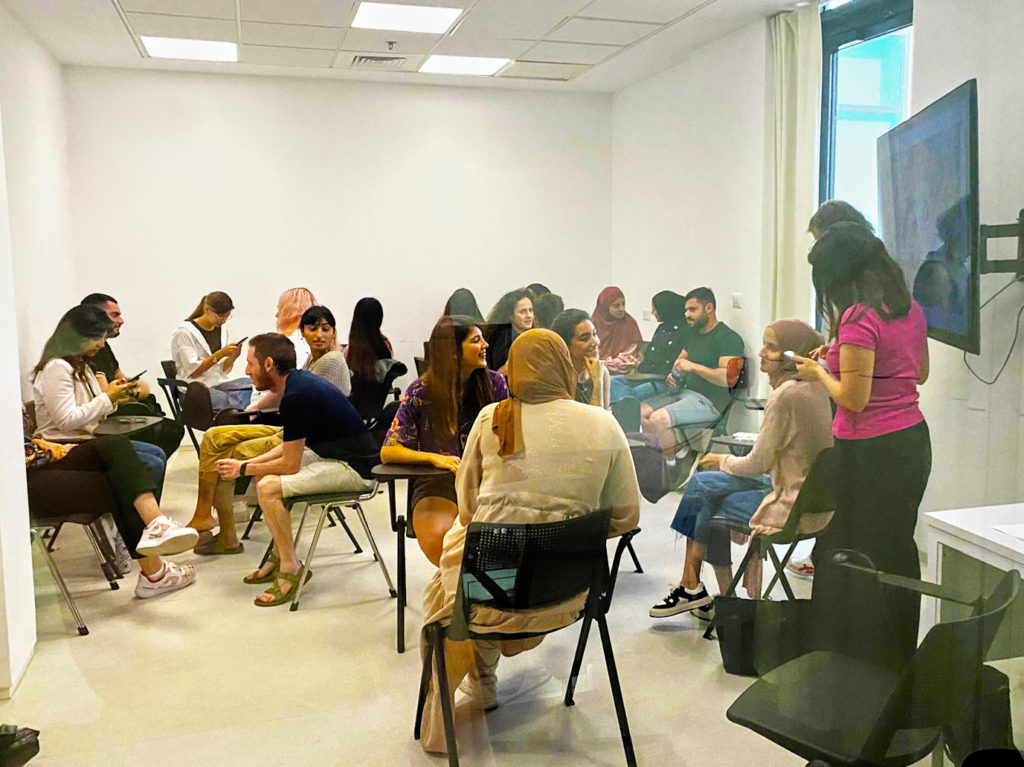Is it right to work in universities that permit political persecution?
Annual Summary of the School for Peace Dialogue Courses in Universities
For 34 years, we have been running a Jewish-Palestinian dialogue course within universities across the country. This is considered one of our largest projects working with young adults. Despite the challenging year and the ongoing war, we managed to conduct six courses on various campuses across the country. A total of 75 Palestinian and Jewish students from various fields of study participated in our courses.
Since the outbreak of the war, we have witnessed political persecution in all spheres, particularly within academic spaces. Palestinian students have been persecuted, and some were suspended due to sharing their political views on social media. Palestinian professors were attacked and summoned for police interrogations, such as the case of Prof. Nadera Shalhoub-Kevorkian, who expressed her opposition to Israel’s war crimes in Gaza and the West Bank (our statement on this matter from March 2024 can be found here).
These events exposed the contradiction within academic spaces, which are supposed to be liberal and democratic, yet, in practice, allow for the oppression of the Palestinian population—students and professors, citizens of the state, who are supposed to enjoy equal rights. This situation raised many questions, such as: Is it right to continue holding courses in academic institutions that struggle to express opposition to war crimes and to support the deal for the release of hostages while allowing an atmosphere of persecution and silencing? Can we ensure participants that the dialogue space is a safe one? That they will not be persecuted after the course? Could holding the dialogue at this time contribute to the normalization of the unequal power relations between the two groups and perpetuate the existing oppression outside?
Despite all the dilemmas, we decided to continue. The academic arena is one of the most important spaces, both locally and globally, for shaping identity and developing critical thinking. That’s why we entered it 34 years ago, and it’s one of the reasons we chose to stay even during this challenging time. Additionally, we believed in the strength of our method, which would help us navigate the turbulence of the period and offer participants a meaningful process.
Holding the courses during such a difficult period allowed both groups to focus on the “essence” and tune out the “noise.” As one of the facilitators noted, “The war made the participants focus on the core issue, where the conflict started in 1948, and less on daily life, as was the case in previous years.” Additionally, a rare space was created where it was possible to mourn the pain and loss of both sides while taking responsibility within a broader context.
Creating a safe space during such a tough time allowed the students to regain a sense of personal and collective agency. One Palestinian participant shared her experience: “The course helped me mentally during this time. With each meeting, I feel more authentic. When we enter the course, we shed everything… and that makes me feel powerful… a feeling I don’t have outside.” A Jewish participant described the main contribution of the meetings: “The exposure to the stories of the families and acquaintances of the Palestinian group members. Through these stories, I understood that the State of Israel was not created out of thin air but at the expense of families who were here before.”
As the academic year ends and we bid farewell to the courses, we are happy and excited about the significant and challenging processes the participants went through. In a year like this, where the global academic arena took to the streets for justice, freedom, equality, and liberty, we understand the magnitude of our impact and the responsibility that rests on all of us in such a historical period.

In the picture: Dialogue group at the Ruppin Academic Center, June 2024

